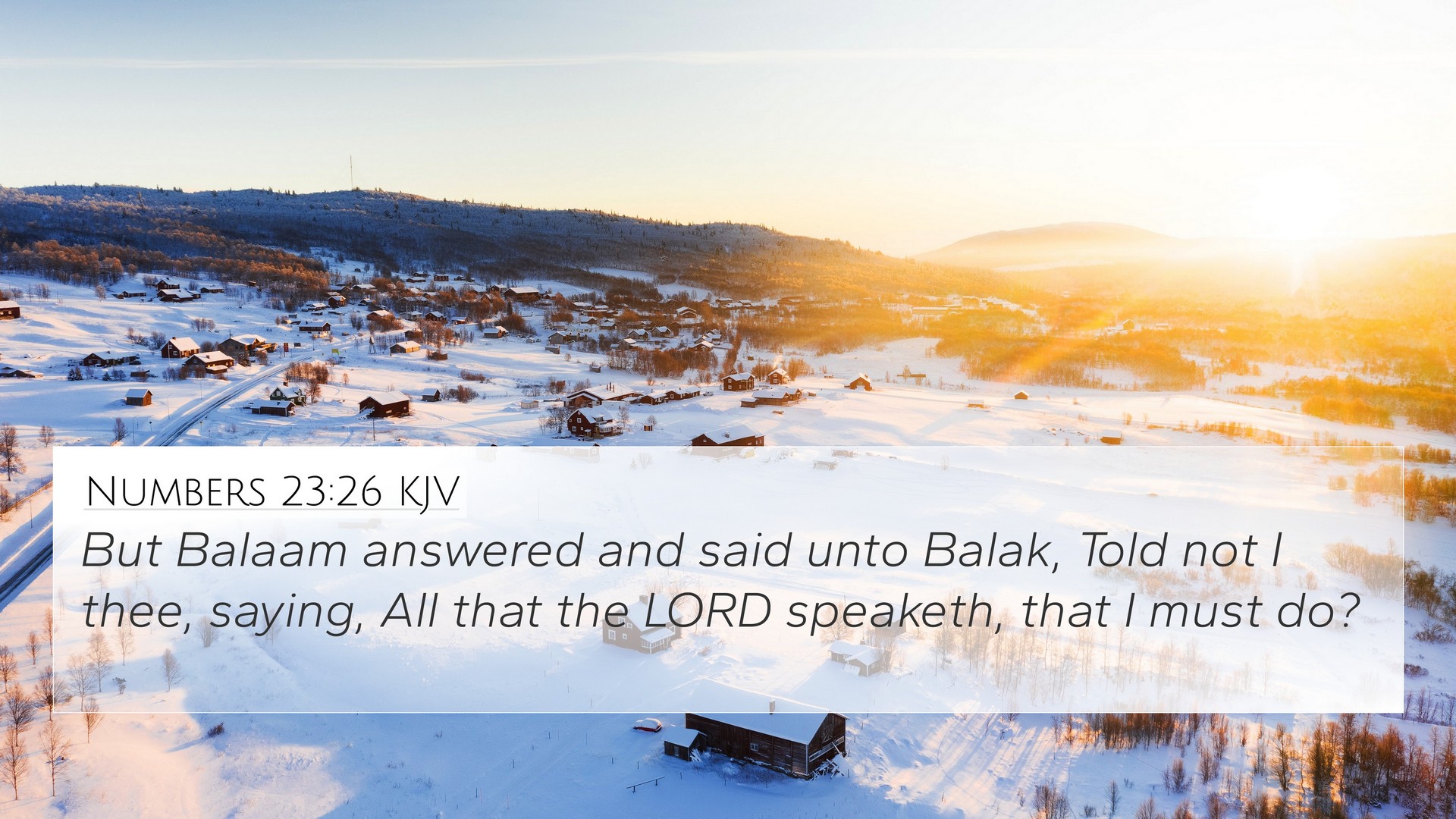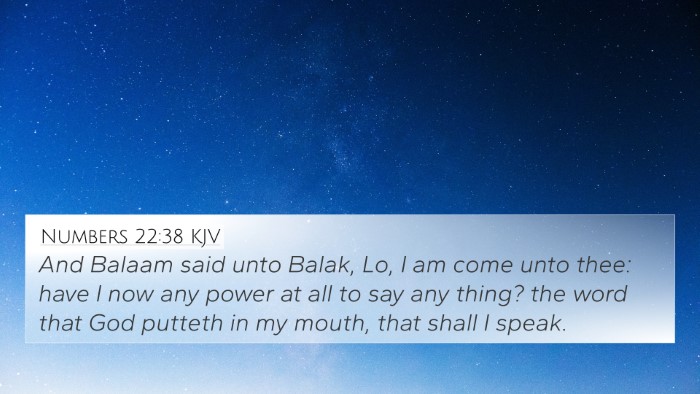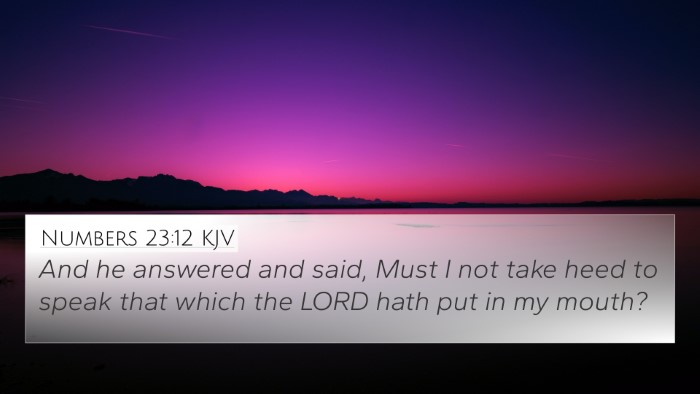Understanding Numbers 23:26
Numbers 23:26 states:
"But Balaam answered and said unto Balak, 'Did I not tell thee, saying, All that the LORD speaketh, that I must do?'"
Summary of Meaning
This verse occurs during a significant moment in the narrative involving Balaam, a prophet hired by Balak, the king of Moab, to curse Israel, God’s chosen people. Previously, Balaam was instructed by God not to curse Israel, demonstrating the doctrine of divine sovereignty over human intentions. This moment highlights several key thematic elements relevant not only to the immediate context but also to broader scriptural teachings.
Thematic Connections
- Divine Sovereignty: God’s authority as supreme over all blessings and curses.
- Prophecies and Their Fulfillment: The obedience of prophets to God’s directives, as focused in this verse.
- Understanding God’s Will: The necessity of aligning one's actions with divine instruction.
- Human Limitations: The futility of opposing God's plans through human means.
Commentary Insights
In viewing this verse through combined insights from public domain commentaries such as Matthew Henry, Albert Barnes, and Adam Clarke, a clear understanding emerges:
- Matthew Henry:
Henry emphasizes the idea that Balaam is acknowledging God's word and the integrity that should accompany doing the Lord's will. He reflects on the importance of truthfulness in fulfilling divine commands.
- Albert Barnes:
Barnes discusses how this statement illustrates Balaam's recognition of the limitations imposed by divine authority. He notes the contrast between human ambition and the sovereignty of God, underscoring that blessings and curses come solely from God.
- Adam Clarke:
Clarke elaborates on the prophetic role of Balaam, suggesting that true prophecy cannot be manipulated for personal or political gain, as evidenced by his steadfast declaration in this verse.
Bible Cross-References
Numbers 23:26 is connected to several bible verses that reinforce its themes. Here are some relevant cross-references:
- Proverbs 21:30: "There is no wisdom, nor understanding, nor counsel against the LORD."
- Isaiah 14:27: "For the LORD of hosts hath purposed, and who shall disannul it?"
- Jeremiah 10:23: "O LORD, I know that the way of man is not in himself: it is not in man that walketh to direct his steps."
- Romans 8:31: "If God be for us, who can be against us?"
- James 4:15: "For that ye ought to say, If the Lord will, we shall live, and do this, or that."
- Acts 5:39: "But if it be of God, ye cannot overthrow it; lest haply ye be found even to fight against God."
- Deuteronomy 18:18: "I will raise them up a Prophet from among their brethren, like unto thee, and will put my words in his mouth."
Inter-Biblical Dialogue
The connections between Numbers 23:26 and these cross-references establish an inter-biblical dialogue emphasizing God's irrevocable purposes. A comparative Bible verse analysis shows a pattern of God's consistent messages across both the Old and New Testaments about His sovereignty and the futility of human opposition to His plans. This ongoing conversation within the scripture fabric serves as a foundation for understanding themes relevant not only to this narrative but also to contemporary believers navigating their own understanding of divine will.
Applying the Insights
Understanding Numbers 23:26 through this scriptural lens helps believers recognize:
- The importance of seeking God's direction in every aspect of life.
- The futility of trying to manipulate God or employ deceit to achieve personal ends.
- Aligning one’s heart and actions with God’s intent to fulfill His purpose.
- The beauty of being a faithful messenger of God, as exhibited by Balaam’s eventual acknowledgment of his limitations.
Conclusion
Numbers 23:26 serves as a profound reminder of the power of God's decisions, a clarion call to recognize the importance of divine instruction, and an invitation to believers to trust in God’s sovereignty over their lives. As we explore toolkits for Bible cross-referencing, readers are encouraged to delve deeper into the connections and themes that weave the fabric of scripture together.










